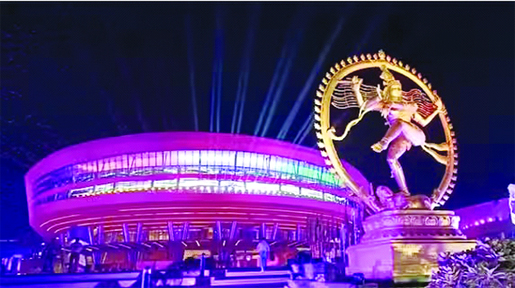New Delhi (TIP)- With negotiations on a draft leaders’ declaration for the G20 Summit going down to the wire on Friday because of differences over the Ukraine conflict and other issues, people familiar with the matter said expectations were growing that a final push by the leaders would be needed to break the impasse.
The sherpas, or personal envoys of the G20 leaders, were unable to agree on a compromise text to refer to Russia’s invasion of Ukraine at a meeting held at a resort at Manesar near the Indian capital despite discussions being extended by a day, people from four G20 member states said on condition of anonymity.
There were also differences on other issues, such as phasing out or phasing down of fossil fuels and debt restructuring, but the people said these were expected to be ironed out by the time the two-day G20 Summit gets underway on Saturday.
“There are a few other issues but they aren’t insurmountable. A lot of ideas are being thrown around and these issues are likely to be sorted out. But things are still stuck on the issue of Ukraine,” one of the people cited above said. The people said the negotiations could require the intervention of leaders of G20 states to break the logjam over text to refer to the Ukraine crisis, just as had happened at last year’s summit in Indonesia.
Both Russia and China have so far refused to accept the text used in the joint communique at last year’s G20 Summit to refer to the Ukraine conflict. Russia has argued the situation on the ground has changed, while China has insisted that the G20 is an economic forum that shouldn’t take up geopolitical issues.
Two officials from G20 member states said another major sticking point in the negotiations was the “obstructionist” role being played by China, especially in blocking initiatives proposed by India and its partners such as the US.
“Russia is largely isolated but China is obstructing a lot of things,” one of the officials said.
Among the formulas discussed to address the impasse over the Ukraine crisis was the possibility of issuing two statements – one a consensus document with all the issues the G20 states had agreed on and another that referred only to the Russian invasion of Ukraine. However, this proposal was not favoured by several G7 member states, the people said.
A senior Japanese government official, speaking on condition of anonymity, said it was still unclear in what format the situation in Ukraine would be incorporated in the draft leaders’ declaration but the G7 members want the issue to be included.
“Japan wants to see a reference to a principled position upholding a free and open international order based on international law, especially the UN Charter and respect for sovereignty and territorial integrity. This shouldn’t be a problem as the G20 members are also UN members. We hope the statement will have the fundamental concept that all countries adhere to,” the Japanese official said. The negotiations for a “consensus expression” of the Ukraine crisis are “really tough” and a final push could be needed from the G20 leaders to arrive at a principled position, the Japanese official added.
The people made it clear that there was no getting around a discussion on the Ukraine issue on the grounds that it is a geopolitical issue – something that China has been pushing for.
“We must discuss Ukraine as it affects lots of issues, including the hike in the prices of food and energy. The root cause is the blatant violation of international law. We can’t fall back from the Bali text,” the Japanese official said. India has so far refrained from publicly criticising Russia’s invasion of Ukraine or voting on resolutions at the UN denouncing Moscow’s actions. The Indian leadership has consistently called for an immediate cessation of hostilities and a return to the path of dialogue and diplomacy.
Russia remains a key partner and major supplier of military hardware and energy for India, which has had to engage in a delicate balancing act amid its growing strategic partnership with the US. Source: HT
Stage set for 2 days of tough parleys
